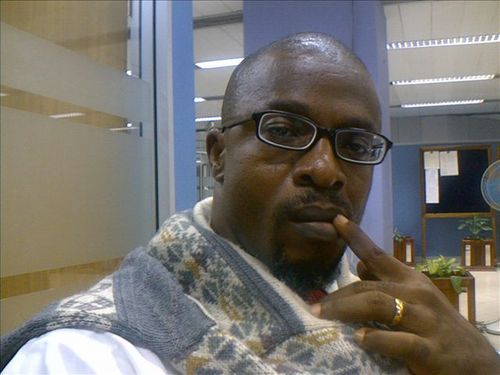
It was rather surprising when on October 1st and in his Independence Day national address, President Goodluck Jonathan announced the setting up of a committee to work out the modalities for a ‘national dialogue’, which is very similar to a sovereign national conference, a sort of first-principles conference for the co-existence of the peoples of Nigeria since we were lumped together by the British in 1914, that has been clamored by many sections of this country for years.
Although former President Olusegun Obasanjo had in 2005 agreed to a national conference, he had made the issue of the sovereignty of the country a no-go area, and in the end, the conference became a smokescreen for him to push through his third term ambitions, which thankfully failed.
In his own case, President Jonathan has not called the proposed conference a ‘Sovereign National Conference’ neither has he created no-go areas, although it would not be surprising to have the committee create that when it finishes its work on the modalities for the national dialogue.
I have always been an opponent, or better yet, a skeptic of the idea of a sovereign national conference. It is not that I do not believe that we need to renegotiate the basis for our existence. It is way overdue. Like most Nigerians, I am far from being happy with the way Nigeria is structured, or the way Nigerians coexist. Issues such as marginalization, indigene-settler dichotomy, zoning, quota systems, etc. have been holding us back as a country and as a nation from truly integrating.
However, my opposition to such a national conference lies with the fact that I fail to see how delegates who will truly represent the ethnic nations that make up Nigeria will be selected. To save space, let me refer to you to an article I wrote early last year on the issue which explains this point of mine in detail.
But even besides the issue of selecting true representatives as delegates to the national dialogue, all I see the national dialogue achieving is that it will provide the opportunity for almost everyone to air their grievances, complete with accusations and counter-accusations. Those accused will naturally be on the defensive; and in the end, all that will be achieved will be an overheating of the polity, to borrow this clichéd phrase.
This is because what this national dialogue attempts to do is akin to a community that continually sprays pesticides to kill mosquitoes in its environment without clearing the open drains that make it conducive for the mosquitoes to exist there in the first place – our lopsided structure as a nation exists because our economic structure allows for that.
Nigeria as a country is not structured for wealth creation; instead, it is structured for wealth sharing. As a result, it has imbued into its citizens a scarcity mindset that has been is one of the root causes of our behavior – the belief that the resources and wealth is so limited, hence we must all fight for our own share, rather than collaborate to create more wealth.
It is the reason why there is a clause in the Nigerian Constitution that stipulates that a minister must be appointed from every state – saddling us with at least 36 ministers despite the fact that we have only 19 ministries, which means many ministries get ministers of state they can do without, and many ministries need not exist at all.
It is also the reason why the issue of indigeneship is a hot-button issue in Nigeria, as it is the first requirement that proves one eligible to access the wealth. One gains greater accessibility depending on whether his ethnic group, region or zone is the majority/power-holder in the state or by extension, the country.
The best way to eliminate this situation is to reconfigure the economic structure of this nation from one where all the wealth is pooled at the centre and then down to the states to one where each component unit is largely responsible for its economic sustenance. In other words, it is about time Nigeria became a truly federal country, economically and politically.
In a system of full and fiscal federalism, each component unit is forced to generate revenue/wealth or die. As a result, the emphasis becomes more on performance and capacity of individuals rather than on their indigene status and other irrelevant sentiments. It brings competition between the states, not to share the spoils from the centre, but to generate wealth and become an attractive environment to live, work and do business.
In such a system, the inefficiencies of our current system and structure will have no place to hide, but they will be glaring obvious. It will also force the melding of our seemingly disparate ethnic nations and religious groups into a more cohesive singular nation.
Admittedly, these things will not happen immediately, but they will definitely happen once set on that path.
Let me give an example:
Of recent, there have been calls from a few Christian clergymen in Lagos State demanding that the next governor of the state in 2015 be a Christian, as only one out of the four elected governors in the state’s history was a Christian. This fact ought to have strengthened the case of the clergymen.
However, I noticed a lot of comments from Christians in the state and from the state lampooning this demand. For them, what matters most in 2015 is that whoever succeeds Governor Babatunde Fashola should be able to continue with the impressive work he has been doing so far and not derail the economic growth of the city-state.
This example about makes clear the point I always make for true and fiscal federalism being the tool that can be used to force the integration of the Nigerian peoples.
Economics always, always trumps politics.


